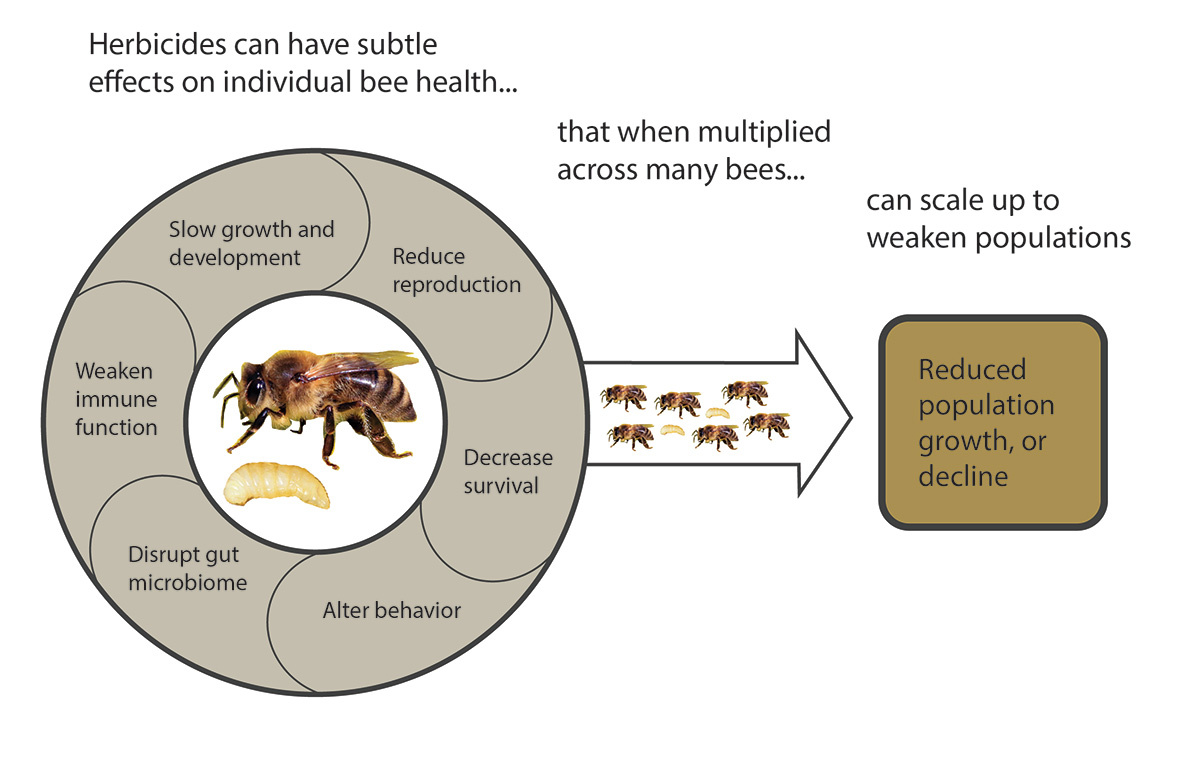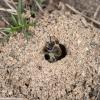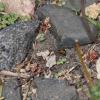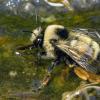If you’re concerned with pollinator conservation at home, you’ve likely taken steps to eliminate insecticide use in your yard. But many gardeners may be surprised to learn that herbicides (chemicals designed to kill plants) can also pose a risk to pollinators and other invertebrates. Luckily, there are a number of solutions that home gardeners can use to manage yards and gardens without herbicides.
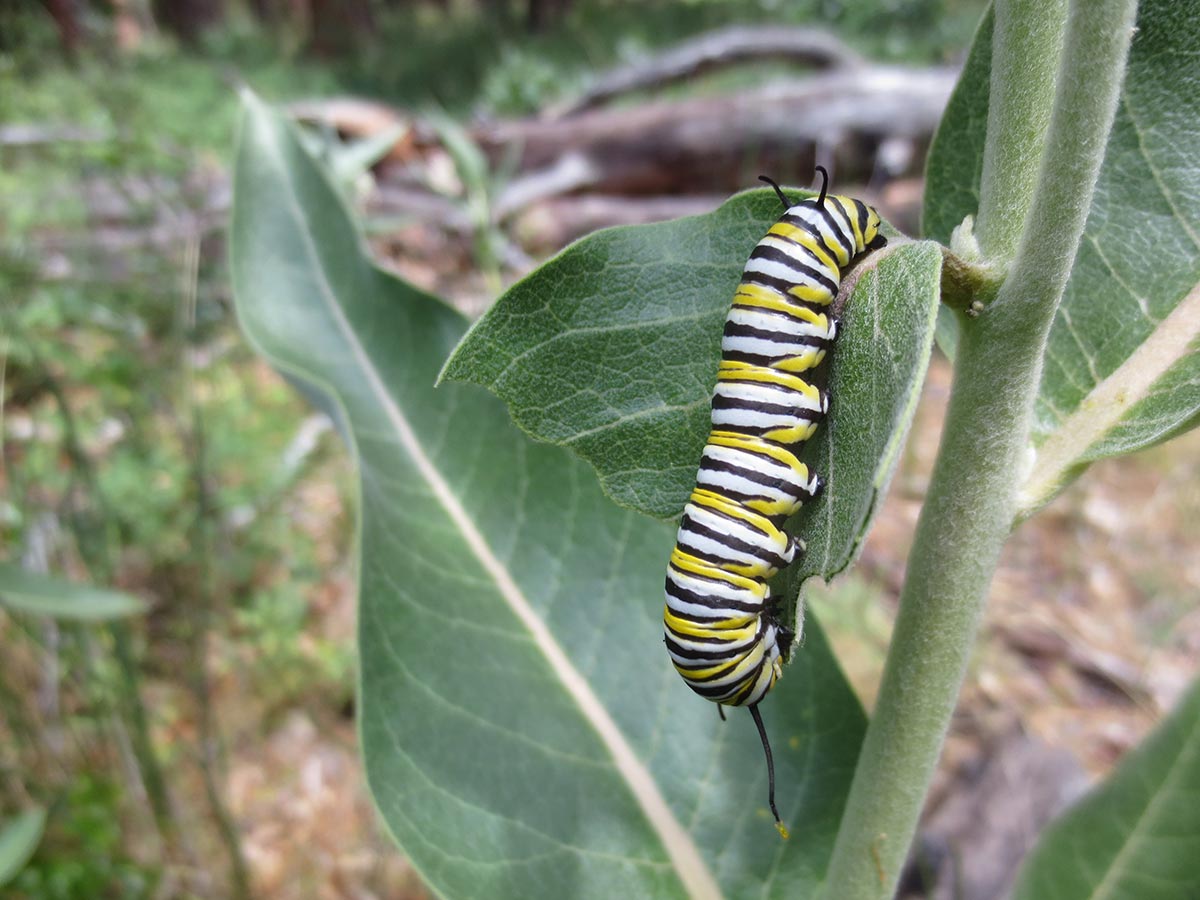
How herbicides hurt pollinators
- Herbicides take away pollinator food sources. A major impact herbicides have on pollinators is simply killing flowering plants that they rely on for food. In urban areas, some important pollinator plants like milkweeds and native thistles are seen as weeds and are sometimes sprayed with herbicides. For example, a nationwide monitoring project in France found that herbicide use could reduce the availability of host plants for many butterflies and decrease the number of butterflies found in yards. Additionally, herbicides used in our communities can move off-site and end up on plants other than the target weeds. Some are prone to drift. Others can wash off hard surfaces, like roads and compacted lawns, and end up contaminating nearby soil and water. Even if herbicide doesn’t kill non-target plants outright, it can reduce plant health, delay flowering, and decrease nectar and pollen production.
- Herbicides can make it hard for bees to find food. Some herbicides have been shown to cause direct harm to pollinators. For example, the most commonly used herbicide, glyphosate, can impact honey bees’ abilities to navigate and prevent the bees from learning the signals associated with food sources. This could interfere with bees’ abilities to find food for their offspring.
- Herbicides can reduce the number of butterfly offspring. One study found that giant swallowtail, spicebush swallowtail, black swallowtail, and monarch butterfly eggs exposed to glyphosate were much less likely to hatch than unexposed eggs.
- Herbicides can weaken insect adults and juveniles. The herbicide 2,4-D can kill or weaken many types of insects, including honey bee larvae.
We should note that there has been relatively little research investigating the direct impacts of herbicides on pollinators, so there is a lot we don’t know! This is one of the reasons we recommend caution, especially when there are other solutions to weed and pest problems at home.
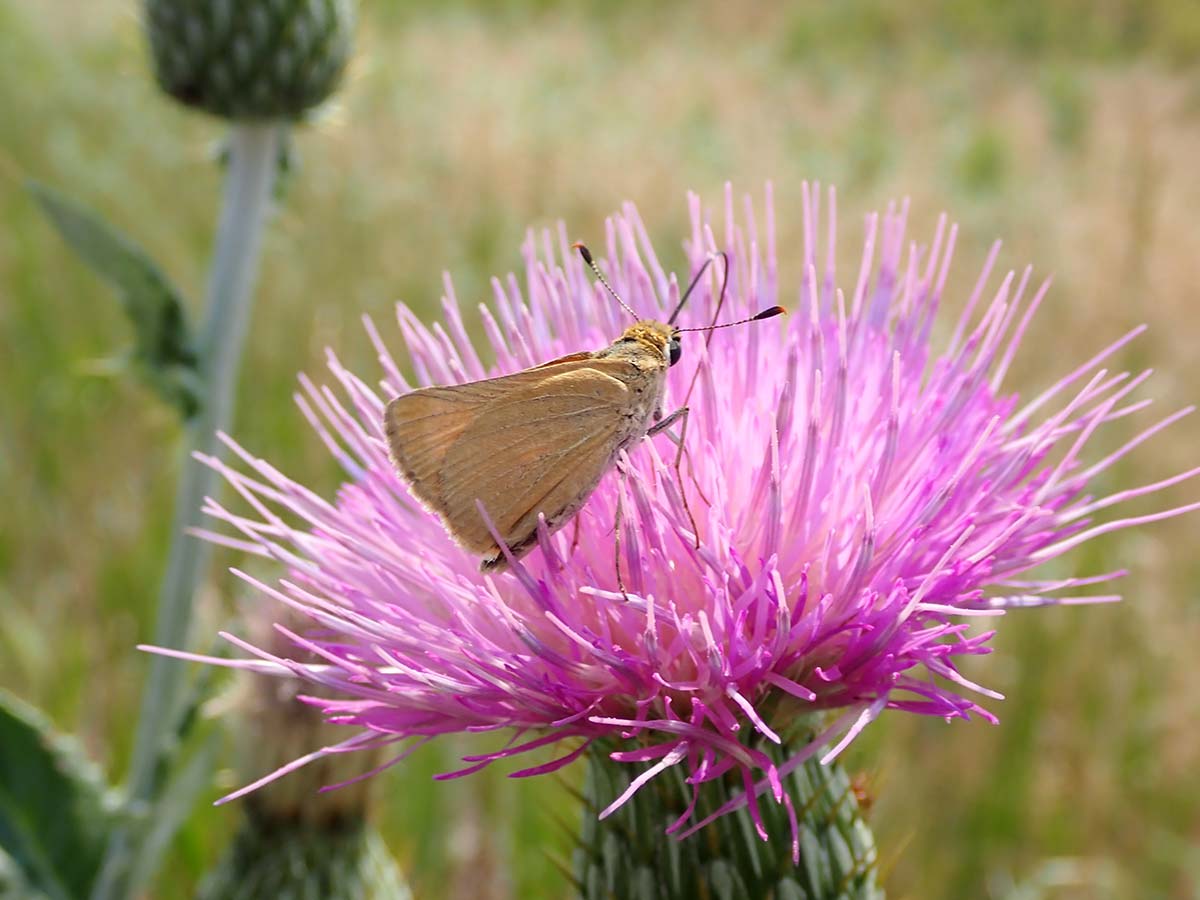
Safe alternatives to herbicides
Luckily there are a variety of strategies you can use to ensure you don’t need herbicides to manage weeds at home.
- Right plant, right place. Create a resilient yard by selecting appropriate plants for your site and learning your soil properties so your garden plants can thrive. Check your soil pH; different plants have different pH needs, so be aware when choosing soil amendments and garden plants. Irrigate your garden with drip hoses so that only desired plants are watered and entire beds aren’t saturated. This will create conditions that will promote the growth of desired plants and help them outcompete weeds.
- Hand weed while plants are still small. The smaller size of home gardens makes weeding a practical method. What’s more, this is the perfect time of year to get on top of weed control when the plants are small and the soil is moist! A variety of ergonomic tools are available that make hand weeding much easier, like hoes and claw weeders. Use dense plantings to outcompete weeds after you remove them, and consider mulch for weed suppression in garden beds.
- View your yard as habitat and embrace ecological beauty. Allow some level of “wildness”, including some flowering weeds, in all or parts of your yard. This will provide protected habitat for all sorts of beneficial invertebrates, including pollinators.
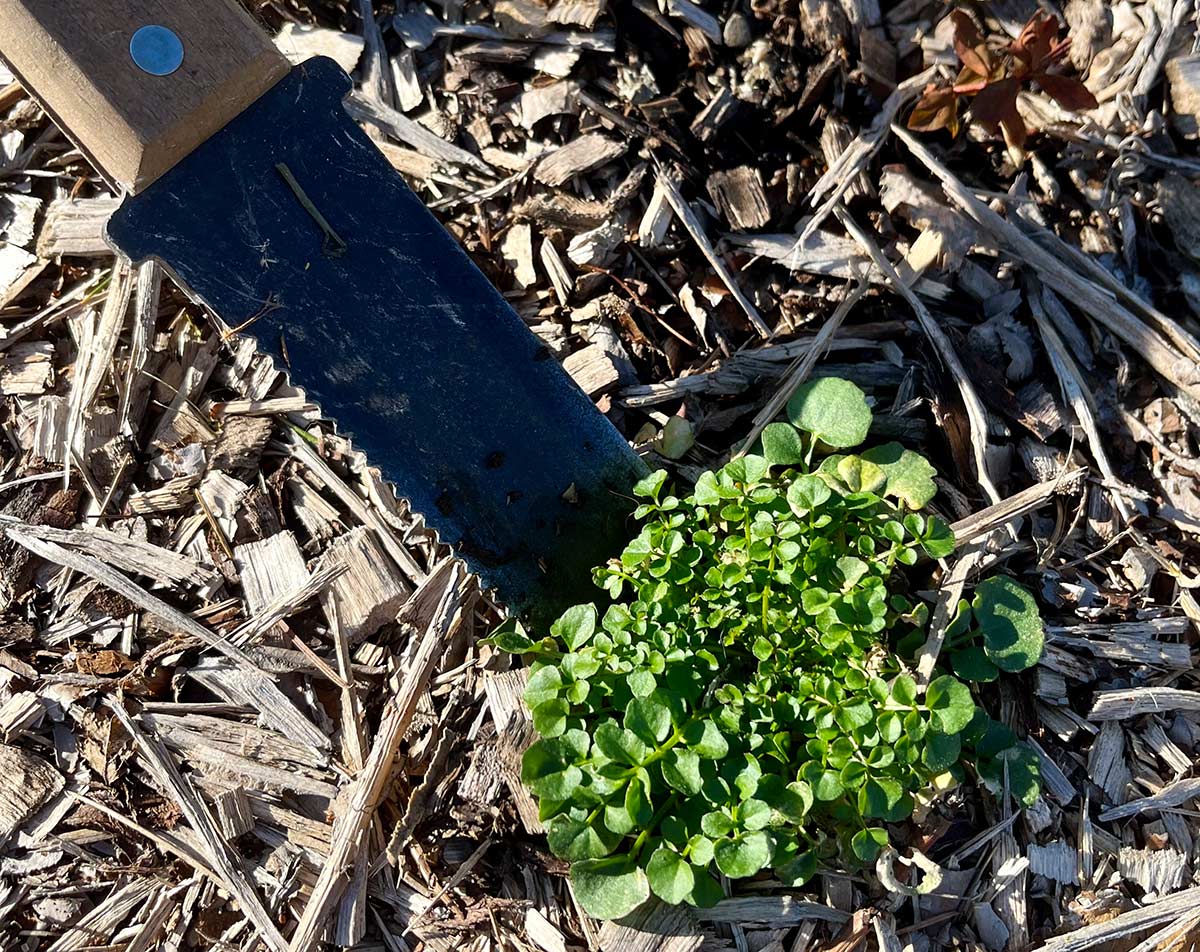
Learn more
Our new Xerces fact sheet, Protecting Pollinators from Herbicides: Rethinking Weed Management at Home shares additional solutions, as well as more about the impacts herbicides can have on pollinators.
